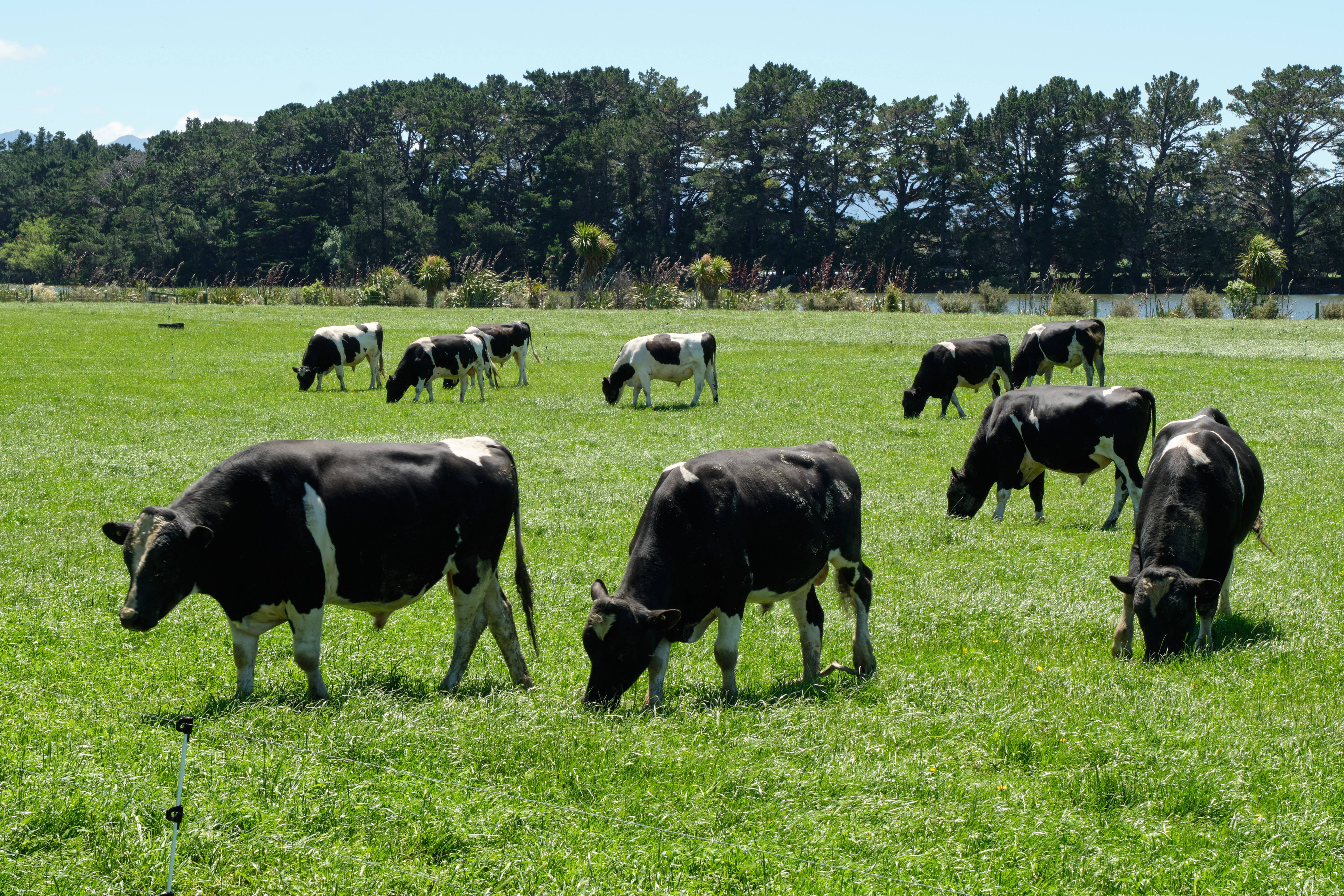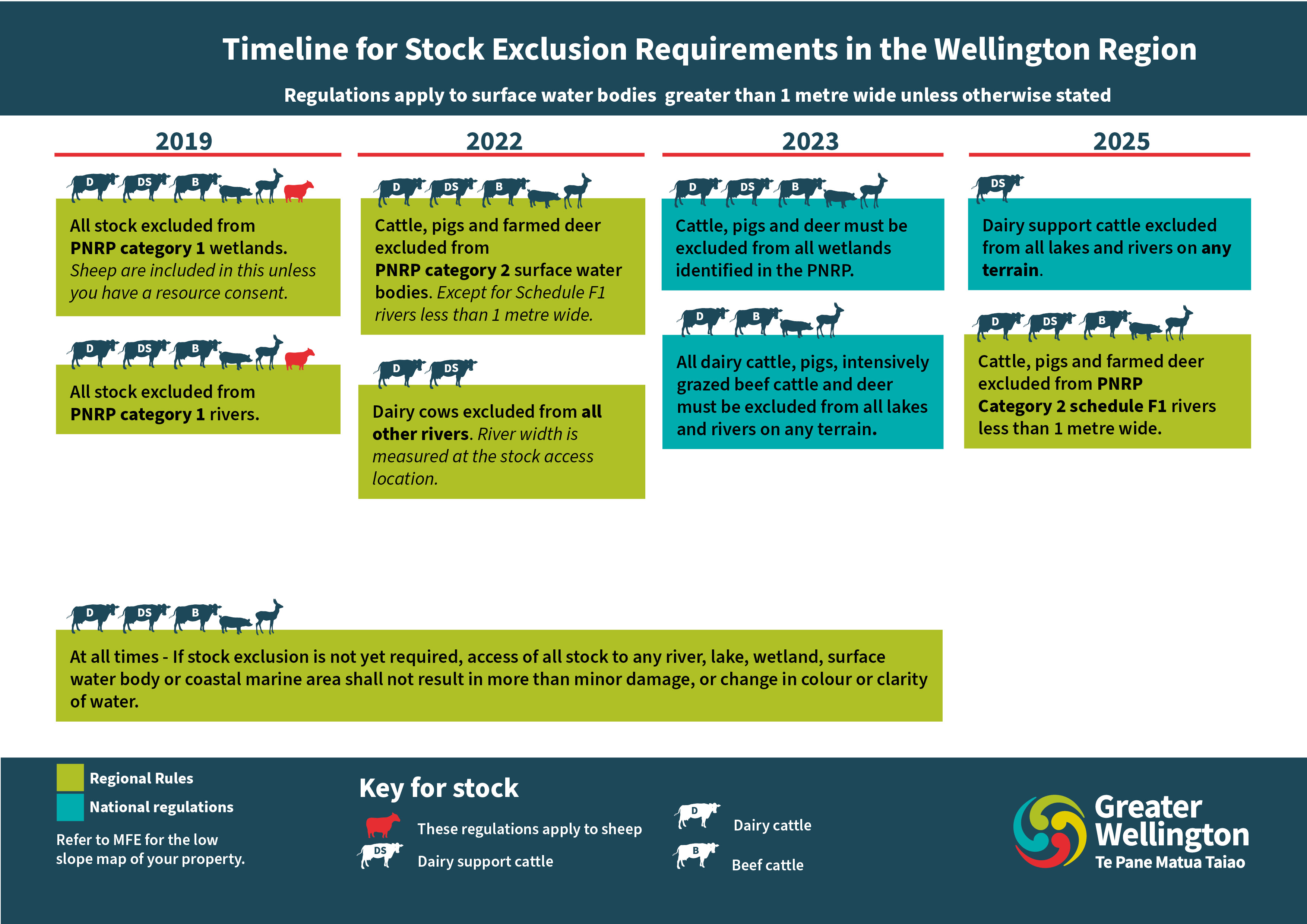Excluding certain livestock from rivers, streams and wetlands is a key step towards improving the health of freshwater, environment and communities. If you are a landowner or manage livestock you should know about national regulations and what’s required in the Wellington Region.
If you’re unsure about how the rules apply to your situation, please get in touch with us via info@gw.govt.nz.
National regulations
National Stock Exclusion regulations take effect for existing farming systems from 2023. In the Wellington Region, these regulations work together with the rules outlined in our Natural Resources Plan (NRP).
In some cases, NRP rules are more stringent than the national regulations. In either case the more stringent rules apply. It is important to know which rules apply to you.
The national stock exclusion regulations apply to any person who owns or manages livestock. It includes rules for stock exclusion from lakes, rivers (more than one metre wide), and wetlands.
If you own land in the Wellington Region that has a waterbody or wetland identified in our Natural Resources Plan, you also need to be aware of these rules.
 Why Stock Exclusion is important
Why Stock Exclusion is important
Not allowing stock to access waterways helps to:
- Protect freshwater from direct contamination by stock dung and urine
- Prevent damage to stream/river banks and vegetation, which can cause erosion
- Safeguard our water quality for mahinga kai (food gathering) and recreation
- Prevent water-borne parasites and diseases in stock
Planting and Good Management Practices
Even if your waterway is not covered by the national and regional rules, it’s still good practice to manage the effects of stock on waterways by minimising the impacts of pugging and sediment losses.
You do not need to plant in an area where stock have been excluded, as it is not a requirement in the Stock Exclusion Regulations. However, you are encouraged to do so because it has benefits for the water quality, biodiversity, and your farm management.
For more information on Good Management Practices, check out our information about farm environment planning.
How we can help
We can provide you with information and advice specific to your situation. We know that the new regulations can be confusing, and we are here to help.
Get in touch with your Land Management Advisor for advice, or contact us through info@gw.govt.nz.
More resources
Get in touch
- Phone:
- 0800 496 734
- Email:
- info@gw.govt.nz

